“Anthropologies and Psychologies in Inter/Action – Engaging Interdisciplinary Perspectives”
11-13 June 2025, University of Münster, Germany
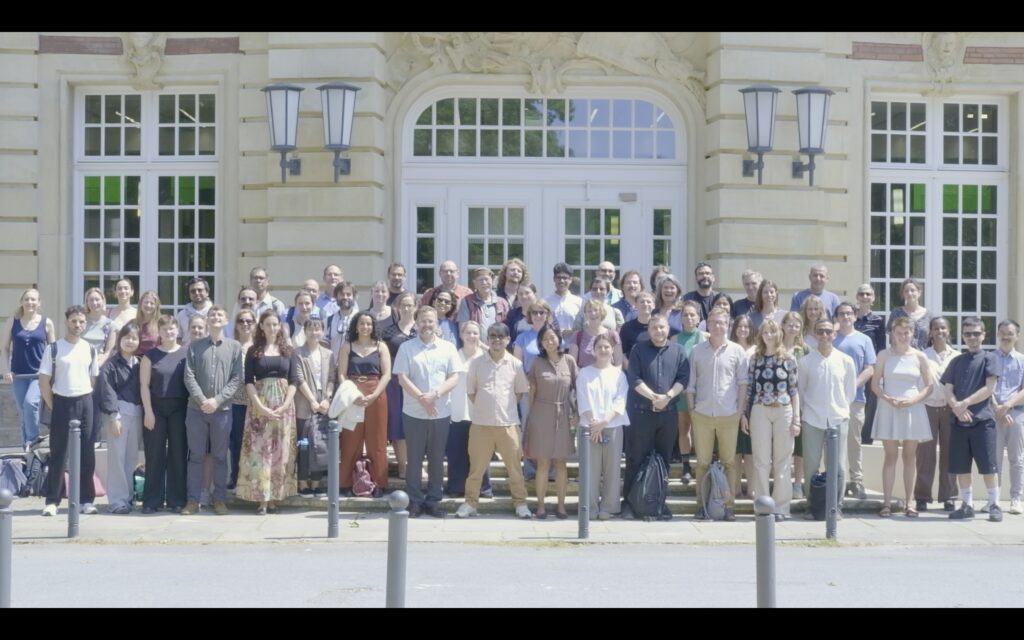
This year’s ENPA conference was jointly organized by the Department of Social and Cultural Anthropology and the Department of Psychology at the University of Münster, together with the European Network of Psychological Anthropology (ENPA). The conference was funded by the Robert Lemelson Foundation, the European Association for Social Anthropologists (EASA), and the University of Münster.
The event proved to be a vibrant and thought-provoking exploration of the emerging intersections between anthropology and psychology. It brought together a diverse community of scholars—anthropologists, psychologists, and scholars and practitioners from related fields—who shared research, offered critical reflections, and collectively envisioned future collaborations at the crossroads of these dynamic disciplines. A central aim of the gathering was to catalyze innovation in interdisciplinary engagements. This was pursued through focused discussions on methodological, theoretical, and conceptual questions. Participants challenged universalizing theories and interventions, particularly when considered in light of critical epistemologies and the urgent need to decolonize and diversify research methods, infrastructures, and curricula. Across the sessions, attendees engaged with a wide range of perspectives, from retrospective analyses of earlier collaborations to reflections on current partnerships and forward-looking visions for future work. The conference underscored how psychological anthropology offers unique insights into new forms of inequality, violence, and human subjectivity in an increasingly interconnected world. It critically examined the long-standing assumption that psychological and bio-psychiatric models should be universally applied to human experience and behavior. This interrogation addressed the inherent tensions between universalizing and relativizing approaches to the human condition—challenges that collaborations between anthropology and psychology are especially well positioned to navigate. Beyond mapping existing interdisciplinary exchanges, the conference emphasized the importance of self-reflexive and collaborative approaches as essential tools for questioning hegemonic assumptions about fundamental dimensions of human life, including feeling, thinking, interacting, and learning.
The ENPA 2025 conference unfolded across three main venues at the University of Münster. Each morning began with keynotes and plenary sessions in the Schloss, the university’s historic castle. Afternoons were devoted to smaller panels and workshops at the nearby Catholic Faculty building. Evenings concluded with social gatherings and performances at the Studiobühne, adjacent to the Faculty, providing a lively space for exchange beyond the formal sessions.
The Pre-Conference Workshop
The ENPA 2025 began with a full-day Writing (Co-)Lab designed specifically for graduate and early-career scholars. Held on June 10, this workshop gathered 15 young scholars and cultivated a space of mutual critique and support, where participants shared draft papers, received interdisciplinary feedback, and discussed the politics of publishing in psychological anthropology. The workshop’s focus was on relational writing, slow scholarship, peer mentoring and different approaches on creating long-lasting collaborative projects.
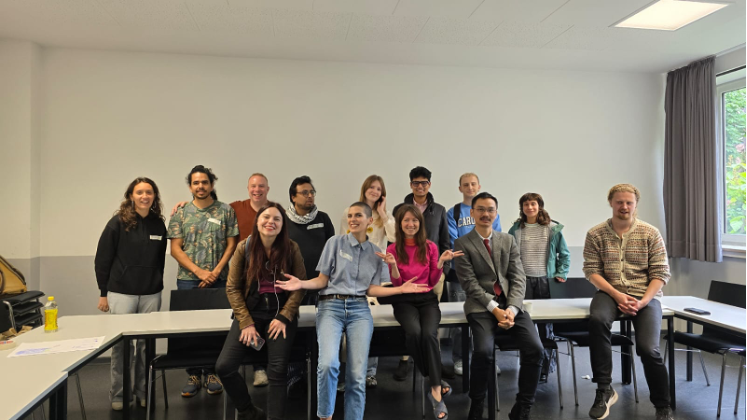
Keynote Speakers
Each day of the conference opened with a keynote lecture. Approximately 150 participants attended the keynote sessions.
Robert Lemelson’s immersive digital ethnography, Pasung, brought attention to shackling practices in Indonesian mental health contexts. Through film and interactive media, Lemelson argued for visual anthropology as a form of witnessing.
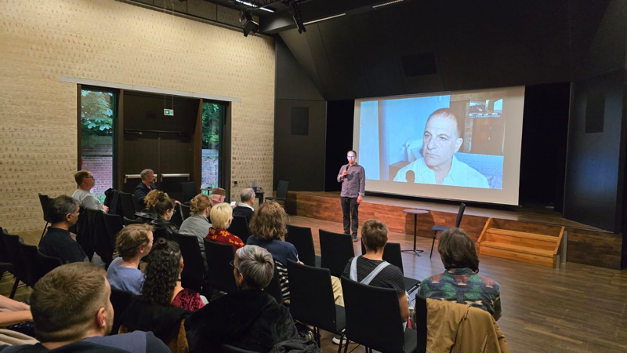
Byron Good traced two decades of work in post-conflict Aceh, where he and his wife Mary-Jo Delvecchio-Good examined the interplay of trauma, memory, and the building of mental health systems in post-disaster zones.

For the full speech of Byron Good, click here.
Charissa Cheah presented on immigrant parenting in the Asian diaspora in the US, showing how youth navigate and transform inherited values in racialized societies.
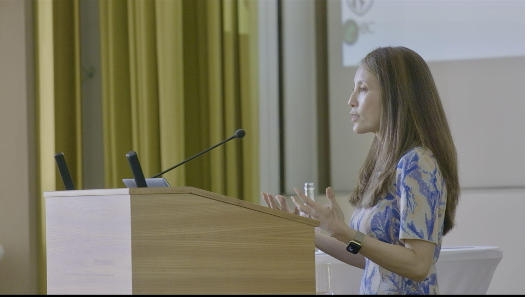
For the full speech of Charissa Cheah, click here.
James Davies presented a critique of neoliberal mental health systems in the UK, urging the audience to use anthropology’s moral imagination to reclaim care from bureaucratic rationality.
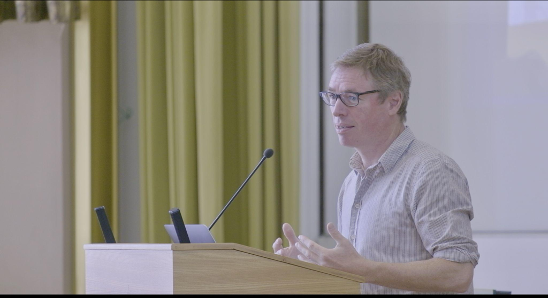
For the full speech of James Davies, click here.
Rupert Cox presented his film experiments about sound and war memory in Okinawa followed by a lively discussion.
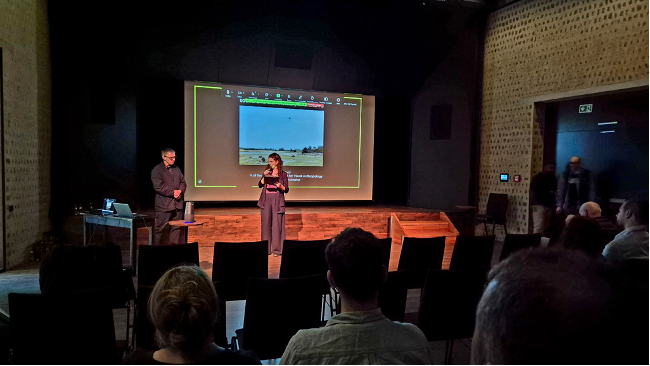
For more information about our Keynote Speakers and an overview of the Schedule of the Conference (see link below):
https://enpanthro.net/wp-content/uploads/2025/06/enpa_schedule_final_09.06.2025.pdf
Panels
In total there were 25 panels (20 on-site, 5 online). Each on-site panel would typically have around 12-15 participants. Whereas, the online panels would usually gather 5-10 participants.
Panel 1: Socialisation / Childrearing – Explored informal care systems under stress—migration, austerity, and crisis. Case studies showed resilience and vulnerability.
Panel 2: Subjectivity through and beyond the lifecourse – Interdisciplinary researchers discussed bridging psychology, ethnography, and neuroscience in their methods.
Panel 3: Decentering Western Psychologies – Panelists used art, poetry, and multimedia as tools for understanding inner worlds across cultures.
Panel 4: Therapy / Clinical applications or explorations / Psychotherapeutic contexts – Focused on how structural inequalities are internalized or challenged by individuals in their psychological lives.
Panel 5: Therapist / Psychiatrist Perspectives – Showed how memories of violence and displacement are transmitted across generations, often through silence or repetition.
Panel 6: Alternative Therapies and Methods – Discussed childhood as a culturally shaped process, resisting Western developmental norms. Included cross-cultural casework.
Panel 7: Structural violences and the state – Explored how feelings like pain, joy, and anxiety are not only mental but embodied and socially organized.
Panel 8: Affect, emotion and embodiment – Case studies of depression, madness, and distress in varying cultural idioms, questioning universal psychiatric categories.
Panel 9: Migration, Belonging and Identity – Researchers reflected on their own experiences and subjectivity in fieldwork—especially when identities overlap.
Panel 10: Mental Health: Diagnosis, treatment, and medication – Discussed how people construct their identities through therapy, digital platforms, and self-tracking.
Panel 12: Mental health: Disorder and dysfunction – Focused on mental health professionals and patients in institutional contexts—examining negotiation, trust, and compliance.
Panel 13: The trouble of feeling: Psychological anthropology in the intersections of gender and sexuality – Panelists worked through issues of gendered violence and psychosocial support, as well as, questions of trauma, identity, emotion and affect, in different social and cultural contexts.
Panel 14: New Medical Humanities in Inter/Action – Presenters debated ethical dilemmas in mental health interventions, especially in humanitarian and postcolonial settings.
Panel 15: Bounded and relational individualisms in anthropology and psychotherapies –
Scholars working with interdisciplinary psychological anthropological frameworks, shared epistemologies of healing and self, challenging dominant therapeutic models.
Panel 16: Anthropology, Psychology, and Self-Understanding: Exploring Educative Contexts and Possibilities – Examined how the fields of anthropology and psychology offer languages of transformation and identity formation, with varying implications.
Panel 17: Children’s development of social behavior: A multi-culture, multi-method approach – Reflexive conversation on where the field is headed, the limits of interdisciplinarity, and institutional challenges.
Panel 18: Living Neurodiversity: Contexts, Challenges, and Critical Reflections –
Focused on ethnographic filmmaking, visual storytelling, and sensory methods to study psychological phenomena.
Panel 19: Addiction in Transition: From Treatment Technologies to Agentive Selves – This panel illuminated how individuals navigate evolving treatment technologies to reclaim agency, moving beyond biomedical models toward self-directed recovery.
Panel 20: Hearing Voices in History – Panelists examined cases across Bali, West Africa, and beyond, showing how hearing “voices” or perceiving non-material beings can be valued cultural practices—rather than pathologized—interrogating the shift from “porous” to “buffered” selves in modern contexts.
Panel 21: Inequalities in (Mental) Healthcare: Critical Perspectives in Psychological and Medical Anthropology – This panel critically addressed how bureaucratization, institutional neglect, and structural violence shape disparities in mental healthcare—highlighting both reinstitutionalization in Italy and Spiritist alternatives in Brazil.
Panel 22: Anthropology of the Self & Subjectivity –This panel explored how embodied conditions like endometriosis and caregiving under structural pressure reflect broader tensions in selfhood—centering intersectional, experience-based understandings of pain, care, and identity.
Panel 23: Mental Distress & Trauma – Panelists shared ethnographic narratives on collective grief, forced-return trauma, cosmological disruptions caused by the pandemic, and metaphor-driven therapeutic journeys—underscoring culturally specific pathways through emotional crisis.
Panel 24: Mental Health: Embodiment – This panel examined how embodied experiences—especially within constrained or institutional settings like migrant detention—are shaped by power, affect, and often overlooked spatial dynamics, calling for more empathetic and situated approaches.
Panel 25: Health Care Systems and Social Organisation – Informed by cases from Italy and Brazil, this panel unpacked how healthcare is structured by political, bureaucratic, and philanthropic forces—highlighting gaps between policy, practice, and equitable provision.
For more details about Panel’s themes and the abstract booklet of the Conferece (see link below):
https://enpanthro.net/wp-content/uploads/2025/06/booklet_29_may_final-ts.pdf
Roundtables
The roundtables brought together scholars to think aloud about the future of the discipline. One explored whether psychological anthropology remains a “necessary and radical project” in times of climate collapse and epistemic crisis. The roundtables served as focal points for collective reflection—bringing together scholars to engage deeply with disciplinary identity, ethics, and future directions.

How is Psychological Anthropology a Necessary and Radical Project of Enduring Value in Anthropology and the Psychological Sciences?
Organized by Edward D. Lowe (moderated by Sarah Willen), this opening roundtable featured Bambi Chapin, Keir Martin, Victoria Sakti, and Thomas Stodulka. It revisited Robert Levine’s framing of the discipline as both necessary and radical, asking how psychological anthropology can continue to integrate anthropology and psychology in culturally expansive ways.
Publishing in Psychological Anthropology: Navigating Challenges and Opportunities
Held in the evening at the Studiobühne, this roundtable was organized by Thomas Stodulka and included participants such as Katja Liebal, Anita von Poser, Naomi Leite, Edward Lowe, and Uwe Wolfradt. Conversations focused on reimagining scholarly communication—balancing traditional formats with multimodal and accessible approaches in the field.
Global Intervention and Culture-Sensitive Practice: Challenges and Ways Forward
Organized by Joscha Kärtner, with panelists Heidi Keller, Gabriel Scheidecker, Tina Malti, and James Davies, this session grappled with the tension between universal mental health interventions and culture-specific validity, pushing for developmental models that are both globally informed and locally resonant.
Psychological Anthropology at the Crossroads: Critique Beyond Echo Chambers and Moralized Discourse
Moderated by Jeta Rexha and featuring Birgitt Röttger-Rössler, Annika Strauss, Paülah Shabel, and Mariana García Palacios, this open-mic style roundtable provided a space for participants to speak candidly about the discipline’s future.
Labs
The labs at ENPA 2025 offered collaborative and experimental spaces for exploring key themes in psychological anthropology through innovative and interdisciplinary approaches. They ranged from artistic and embodied methods (Lab 1) to emotionally charged writing and grief work (Lab 2), and from interdisciplinary tools for assessing childhood development (Lab 3) to cross-field methodologies for analyzing social interaction (Lab 4). Participants engaged in decolonial visual practices (Lab 5), critical reflections on autoethnography and mental health (Lab 6), and methodological innovation rooted in care and rupture (Lab 7). Lab 8 introduced the concept of the counter-gaze, inviting reflection on power, representation, and positionality in ethnographic practice. The labs explored research formats and emphasized vulnerability, ethics, and creativity in knowledge production.
Lab 1: Ethnographic Echoes – Artistic methods to access embodied knowledge.
Lab 2: Writing When Eyes Are Filled / Field with Tears – Emotionally charged writing and grief work.
Lab 3: Assessing Developmental Contexts – Building a multimodule interdisciplinary tool for childhood research.
Lab 4: Bridging Disciplines – Cross-field methods for analyzing social interaction.
Lab 5: De-illustrating Hierarchies – Decolonial approaches to visual practice.
Lab 6: Too Much Information? Autoethnography & Mental Health – Balancing lived experience with scholarly rigor.
Lab 7: Confronting Rupture – Methodological innovation and care in the face of trauma.
Lab 8: Looking Back: A Practice of Counter-Gaze – A continuous, walk-in reflective space throughout the conference, culminating in a visual closing.
Organization teams included:
Conference Chairs: Leading overall planning and coordination; Scientific Committee: Shaping the academic program and reviewing submissions; Local Organizing Committee: Handling logistics, venue arrangements, and participant support; Communications Team: Managing outreach, website, and social media.; Student and Volunteer Coordinators: Assisting onsite and facilitating workshops and labs.
- Thomas Stodulka (University of Münster)
- Joscha Kärtner (University of Münster)
- Jeta Rexha (University of Münster)
- Irina Savu-Cristea (University of Münster)
- Christiane Borgmann (University of Münster)
- Marta Giner Torréns (University of Münster)
- Jan Göbel (University of Münster)
- Merle Bartoldus (University of Münster)
- Stephanie Osterheider (University of Münster)
- Mona Behnke (Freie Universität Berlin)
- Lavinia Țânculescu-Popa (Hyperion University Bucharest)
- Nadia Augustyniak (University of Helsinki)
- Maija-Eliina Sequeira (University of Helsinki)
- Ildze Jakunova (University of Helsinki)
*Report and texts by Jeta Rexha and Thomas Stodulka.
Edited by Panos Tsitsanoudis (ENPA’s Blog Team).
**Photos by © Basil Islam.
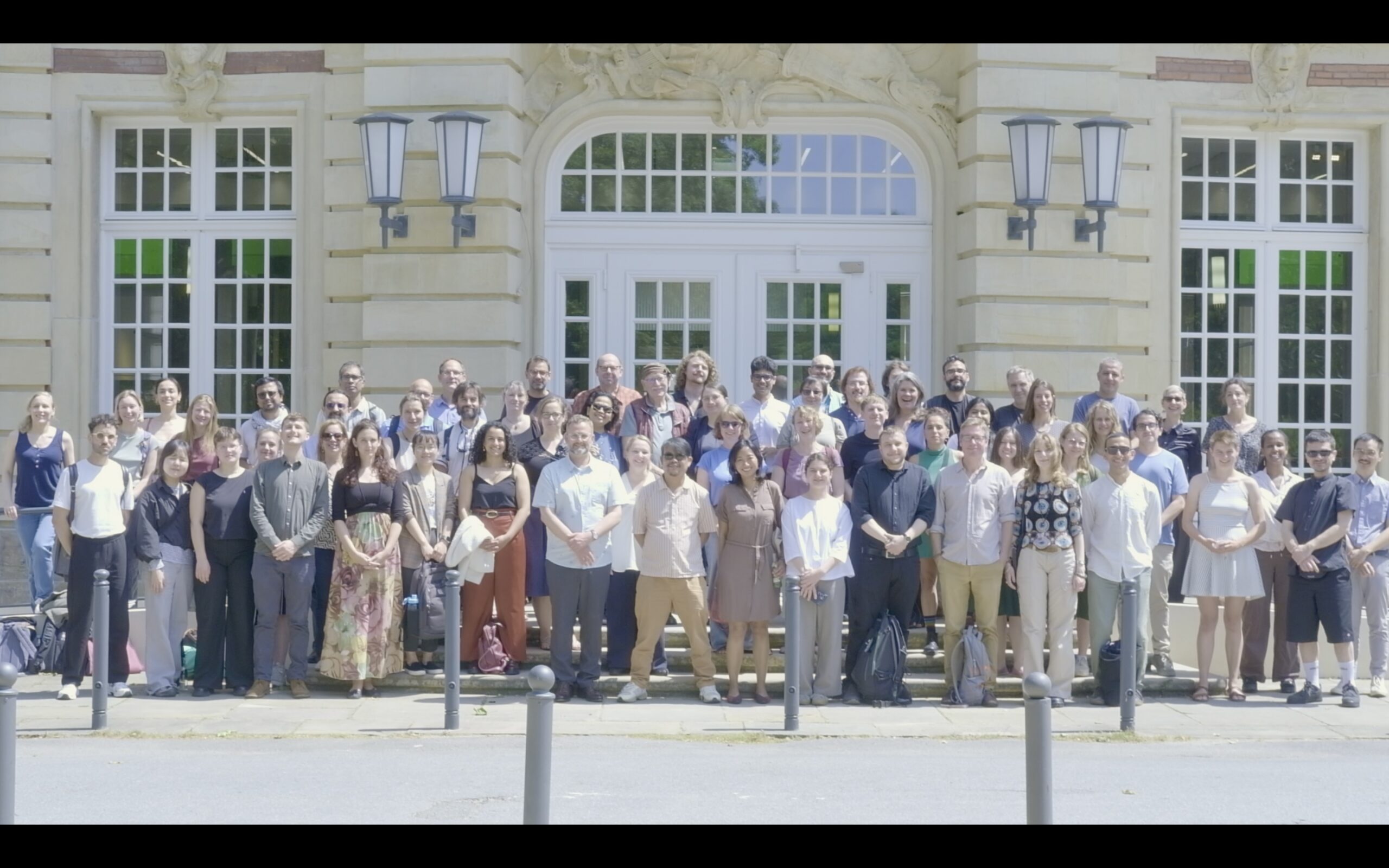
Leave a Reply